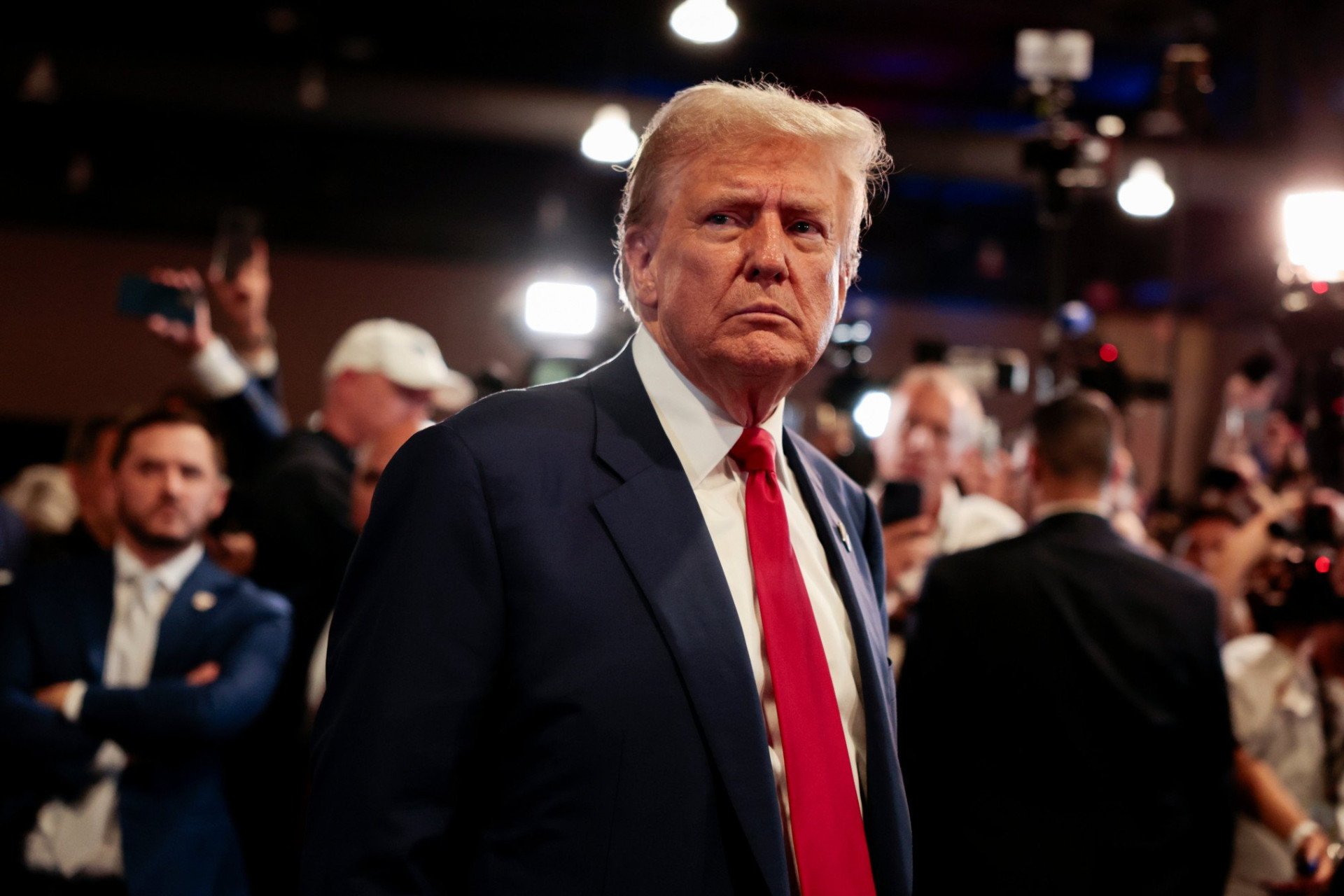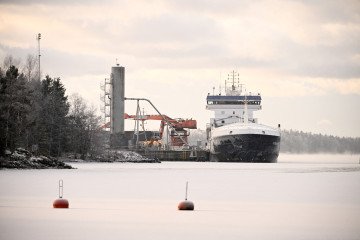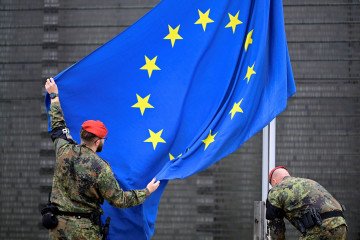- Category
- World
A Retrospective on US-Ukraine Relations

A retrospective on US presidential visits to Kyiv from 1991 to today—and how these visits shaped current US foreign policy toward Ukraine.
Since Ukraine gained independence from the Soviet Union in 1991, US-Ukraine relations have seen a series of pivotal moments shaped by visiting American presidents. From Bill Clinton’s role in Ukraine’s denuclearization, albeit one that he later came to regret, to George W. Bush’s support for NATO membership, each visit has mirrored the geopolitical climate of the time and the evolving policies surrounding US-Ukraine ties.
With Donald Trump’s recent election victory, it is essential to look back at these visits and the policies they forged. UNITED24 Media offers a retrospective on the presidential visits that shaped the US-Ukraine relationship, taking a closer look at how each leader’s approach contributed to current and future US foreign policy towards its longstanding ally, Ukraine.
The moments chronicled here—from diplomatic agreements to symbolic shows of solidarity—highlight the complex but steadfast bond between the two nations and the stakes as Ukraine continues to defend its independence today.
George H.W Bush
“Chicken Kyiv” Speech
George H.W. Bush visited Ukraine on August 1, 1991. During his visit, he addressed the Ukrainian parliament (the Verkhovna Rada) in what is often referred to as the “Chicken Kyiv” speech.
His address, which drew criticism in the United States, cautioned Ukraine against “suicidal nationalism” and urged it to pursue autonomy within a decentralized Soviet framework. Ukraine declared its independence from the Soviet Union just a few weeks later, on August 24, 1991.
Bill Clinton
Ukraine Disarmament Treaty
On January 12, 1994, US President Bill Clinton met with Ukrainian President Leonid Kravchuk in Kyiv as part of a historic agreement related to nuclear disarmament. The meeting concerned Ukraine agreeing to transfer its nuclear arsenal, one of the largest in the world at the time, to Russia for dismantling.
This meeting was part of the Trilateral Agreement between the United States, Russia, and Ukraine, which also included security assurances for Ukraine’s sovereignty and territorial integrity, later formalized in the Budapest Memorandum in December 1994. The agreement involved Ukraine joining the Treaty on the Non-Proliferation of Nuclear Weapons (NPT) as a non-nuclear state and was seen as a milestone in reducing global nuclear arms at the time.
Hindsight being 20-20, the agreement is one Bill Clinton said he now regrets. “I feel a personal stake because I got them [Ukraine] to agree to give up their nuclear weapons. And none of them believe that Russia would have pulled this stunt if Ukraine still had their weapons,” Clinton told Irish broadcaster RTE. At the time, however it was a decision seen as being vital to securing Ukraine’s independence.
Ukraine’s successful disarmament and establishment of a market economy
On May 11-12, 1995, US President Bill Clinton made a state visit to Ukraine, marking the first official “State Visit” by a sitting US president to the country since its independence in 1991. His January 12 visit earlier that same year was part of the Trilateral agreement and therefore different from an official State Visit – think of it like a foreign leader visiting the United Nations versus the White House.
Despite initial friction regarding nuclear disarmament, Clinton’s trip was a significant step in solidifying the US-Ukraine partnership and underscored America’s support for Ukraine’s sovereignty, independence, and post-Soviet transition. Clinton and Kuchma also discussed US economic assistance to help Ukraine’s market-oriented reforms and efforts to integrate more closely with Europe.
In a notable public address in Kyiv, Clinton spoke to Ukrainians about the importance of freedom, democracy, and the rule of law, affirming US support for Ukraine’s aspirations for independence and self-determination. This visit symbolized a strengthened bilateral relationship and positioned Ukraine as a critical partner in Eastern Europe amidst broader US efforts to support stability and democracy in the region.
“This nation is large, strong, committed to independence, committed to having cordial relations with all of its neighbors and with others who share its values. And I believe its strategic importance is very, very great,” said President Clinton.
[Ukraine] is large, strong, committed to independence, committed to having cordial relations with all of its neighbors and with others who share its values.
US President Bill Clinton
That year, Russia was involved in the Chechen war. The Republican Senate majority leader at the time, Bob Dole, criticized Clinton’s trip, which included a visit to Moscow, proposing that Congress should reassess relations with Russia because of its ongoing war and its nuclear dealings with Iran. Despite issues to the east, one New York Times journalist who was present at the Clinton-Kuchma meeting wrote, “All indications tonight were of American-Ukrainian conviviality.”
Chornobyl, EU, and Ukraine’s Non-Profileration
On June 5, 2000, President Bill Clinton visited Kyiv, Ukraine, where he met again with Ukrainian President Kuchma. This visit was part of Clinton’s broader tour in Eastern Europe, aiming to strengthen US relations and support democratic reforms in the region.
During their meeting, Clinton and Kuchma discussed Ukraine’s economic reforms, anti-corruption measures, and efforts to integrate more closely with European institutions. Clinton emphasized the importance of democratic development and transparency, as Ukraine was facing challenges related to political reforms and economic instability at the time.
The leaders also discussed security cooperation and Ukraine’s commitment to nonproliferation, given its earlier decision to denuclearize. Clinton’s visit underscored US support for Ukraine’s independence and sovereignty while encouraging Kuchma’s government to pursue democratic reforms essential for Ukraine’s long-term stability and partnership with Western nations.
During this visit, President Kuchma also announced that the final reactor at the Chornobyl nuclear power plant would be shut down on December 15, 2000. The United States pledged $78 million to reinforce the concrete casing over the damaged reactor and an additional $2 million to enhance safety at other Ukrainian nuclear facilities.
George W. Bush
Ukraine NATO Membership
On March 3- April 1, 2008, US President George W. Bush visited Kyiv, where he met with President Viktor Yushchenko and Prime Minister Yulia Tymoshenko. During this visit, President Bush expressed strong support for Ukraine’s aspirations to join NATO and emphasized the deepening partnership between the two nations, saying, “Your sovereign nation has a friend and a solid partner in the United States.”
The timing of this visit was significant as it took place just before the NATO Bucharest Summit, where Ukraine’s potential NATO membership was a key topic of discussion.
Your sovereign nation has a friend and a solid partner in the United States.
US President George W. Bush
During his meetings, President Bush expressed strong support for Ukraine’s aspirations to join NATO and backed Ukraine’s request for a Membership Action Plan (MAP), which would put Ukraine on a path toward NATO membership. However, while Bush was supportive, other NATO members were more hesitant, particularly Germany and France, citing concerns over Ukraine’s internal political stability and potential reactions from Russia.
The visit showcased US commitment to Ukraine’s sovereignty and security, aligning with Ukraine’s pro-Western leadership at the time, but it also highlighted the divisions within NATO on the question of further eastward expansion. Ultimately, while NATO affirmed that Ukraine would one day become a member, it did not grant Ukraine a MAP at the Bucharest Summit, largely due to Russian opposition and internal NATO debates.
Barack Obama
During his presidency from 2009 to 2017, Barack Obama did not visit Ukraine. Instead, he delegated diplomatic responsibilities concerning Ukraine to other officials. Vice President Joe Biden made six visits to Ukraine during this period, focusing on anti-corruption reforms and supporting Ukraine’s sovereignty.
Secretary of State John Kerry and other senior officials also engaged with Ukrainian leaders to address the country’s challenges.
Donald Trump
Donald Trump did not visit Ukraine during his time in office from 2017 to 2021. Instead of a personal visit, the Trump administration provided military aid to Ukraine, including anti-tank missiles (Javelins) and other defensive equipment.
Joe Biden
Biden’s historic wartime visit to Ukraine
On February 20, 2023, US President Joe Biden visited Kyiv, Ukraine, where he met with President Volodymyr Zelenskyy to commemorate the one-year anniversary of Russia’s full-scale invasion of Ukraine. This unannounced visit was a historic show of support, marking the first time a sitting US president visited a war zone without a large American military presence.
During their meeting, Biden and Zelensky discussed continued US support for Ukraine, including military aid, economic assistance, and sanctions against Russia. Biden announced an additional $500 million in aid, reinforcing the US commitment to Ukraine’s sovereignty and resistance against Russia.
-fca37bf6b0e73483220d55f0816978cf.jpeg)
-27ef304a0bfb28cb4215e5deede4a665.png)
-46f6afa2f66d31ff3df8ea1a8f5524ec.jpg)

-605be766de04ba3d21b67fb76a76786a.jpg)
-2c683d1619a06f3b17d6ca7dd11ad5a1.jpg)

